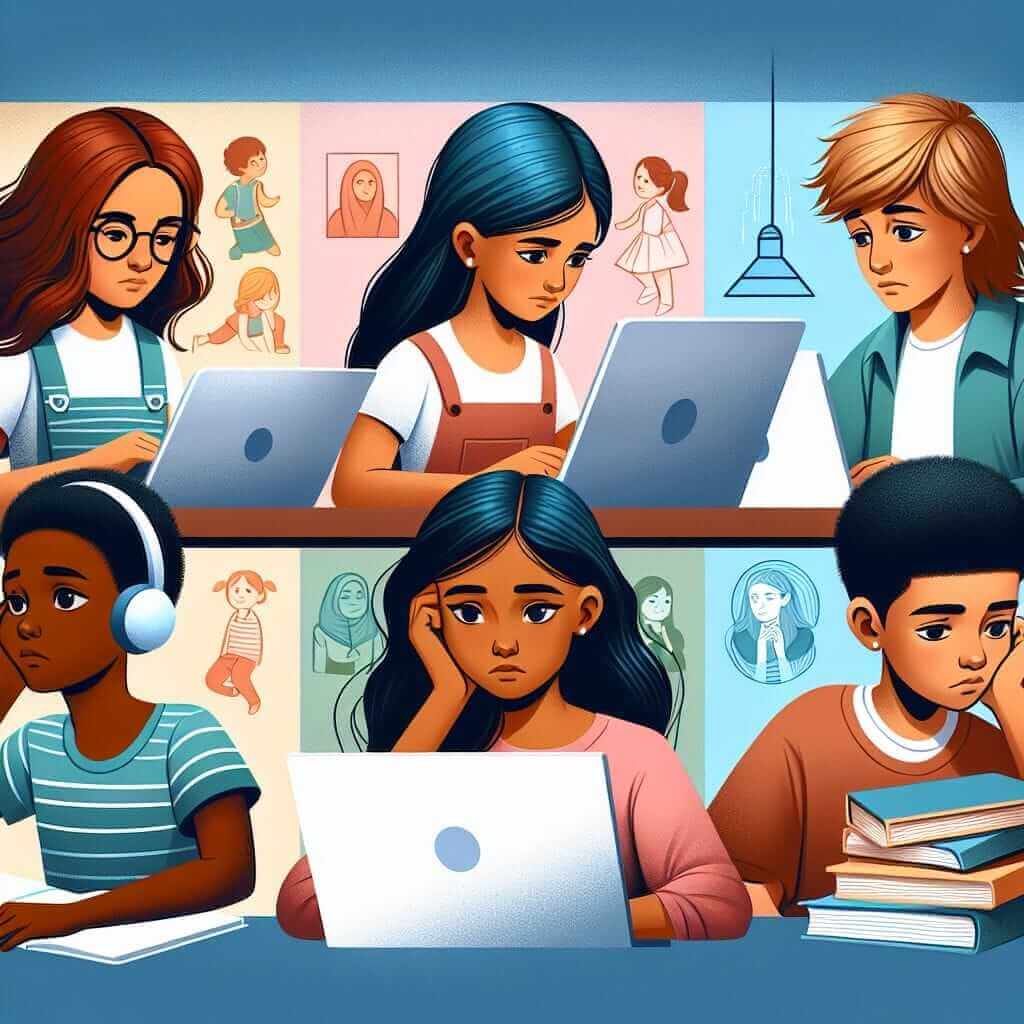The digital revolution has dramatically transformed education, particularly with the rise of online learning. While this modality offers unprecedented opportunities for accessing knowledge, it also raises concerns about exacerbating existing educational inequalities. The phrase “The impact of online learning on educational inequality” is increasingly prevalent in academic discussions and frequently appears in IELTS Writing Task 2 prompts.
Here are some potential IELTS Writing Task 2 questions related to this topic:
- To what extent do you agree or disagree that online learning promotes equal access to education for all?
- Discuss the advantages and disadvantages of online learning in terms of its impact on educational equality.
- Some people believe that online education can bridge the gap between privileged and disadvantaged students, while others argue that it widens the gap. Discuss both views and give your opinion.
Analyzing an IELTS Writing Task 2 Question
Let’s choose the first question for our sample essay:
To what extent do you agree or disagree that online learning promotes equal access to education for all?
This question requires you to present a clear stance on whether online learning truly levels the playing field in education. You need to explore both sides of the argument, presenting evidence for and against the idea that online learning automatically leads to educational equality.
Sample Essay:
Question: To what extent do you agree or disagree that online learning promotes equal access to education for all?
Answer:
Online learning has emerged as a transformative force in education, offering flexibility and accessibility to learners globally. However, the notion that it inherently promotes equal access to education for all is a complex one, fraught with caveats and contingent on various socioeconomic factors. While online learning undoubtedly dismantles certain barriers, it simultaneously erects new ones, potentially exacerbating existing inequalities.
Advocates of online learning posit that it democratizes education by transcending geographical limitations and offering a plethora of courses at often lower costs than traditional institutions. This is particularly beneficial for students in remote areas or those with disabilities who may find it challenging to attend physical classes. Furthermore, the self-paced nature of many online courses caters to diverse learning styles and schedules, fostering inclusivity for those juggling work or family commitments.
However, detractors argue that online learning is not the panacea it seems, as it can widen the digital divide. Equitable access to technology, reliable internet connectivity, and digital literacy skills are prerequisites for successful online learning experiences. Unfortunately, these resources are not evenly distributed, particularly in developing countries and underprivileged communities. Students lacking these essential tools risk being left behind, further marginalizing them in an increasingly digital world.
Moreover, the online environment can be isolating and may not be conducive to all learners. The lack of face-to-face interaction and immediate support from educators can be detrimental to students who thrive in collaborative settings or require more personalized guidance.
In conclusion, while online learning possesses the potential to bridge educational gaps, it is not a silver bullet solution. Its impact on educational equality is contingent on addressing the digital divide and ensuring that all learners have equal opportunities to thrive in digital learning environments. Governments, educational institutions, and technology providers must collaborate to bridge this gap by investing in infrastructure, digital literacy programs, and inclusive online learning platforms. Only then can online learning truly live up to its promise of democratizing education for all.
(Word count: 286 words)
Writing Tips for this Topic:
- Vocabulary: Utilize a wide range of vocabulary related to education, technology, and social equality. Avoid repetition by using synonyms.
- Grammar: Pay attention to complex sentence structures, using a mix of simple, compound, and complex sentences. Ensure correct use of articles, prepositions, and verb tenses.
- Structure: Follow a clear structure with an introduction, body paragraphs (presenting both sides of the argument), and a conclusion. Use topic sentences to introduce each paragraph’s main idea.
- Examples: Provide relevant and specific examples to support your points. You can draw from current events, historical occurrences, or hypothetical situations.
- Coherence & Cohesion: Use linking words and phrases to connect ideas within and between paragraphs. This ensures your essay flows smoothly and logically.
Vocabulary to Remember:
- Digital Divide: (noun) /ˈdɪdʒɪtəl dɪˈvaɪd/ – The gap between those who have access to technology and those who do not.
- Equitable: (adjective) /ˈɛkwɪtəbəl/ – Fair and impartial.
- Democratize: (verb) /dɪˈmɒkrəˌtaɪz/ – To make something accessible to everyone.
- Panacea: (noun) /ˌpænəˈsiːə/ – A solution or remedy for all difficulties or diseases.
- Marginalize: (verb) /ˈmɑːrdʒɪnəˌlaɪz/ – Treat a person, group, or concept as insignificant or peripheral.
Conclusion
The impact of online learning on educational inequality is a multifaceted issue with no easy answers. When writing about this topic, it is crucial to consider various perspectives, provide well-supported arguments, and showcase a sophisticated command of the English language. Be sure to practice writing essays on similar themes, incorporating the vocabulary and tips provided above to excel in your IELTS Writing Task 2.
You might also encounter related topics such as:
- The role of technology in bridging the educational gap in developing countries.
- The impact of artificial intelligence on the future of education and its potential to exacerbate or mitigate inequalities.
- The responsibility of governments and policymakers in ensuring equitable access to quality online learning opportunities.
Remember, consistent practice and a deep understanding of the issues will undoubtedly equip you to succeed in your IELTS exam.
